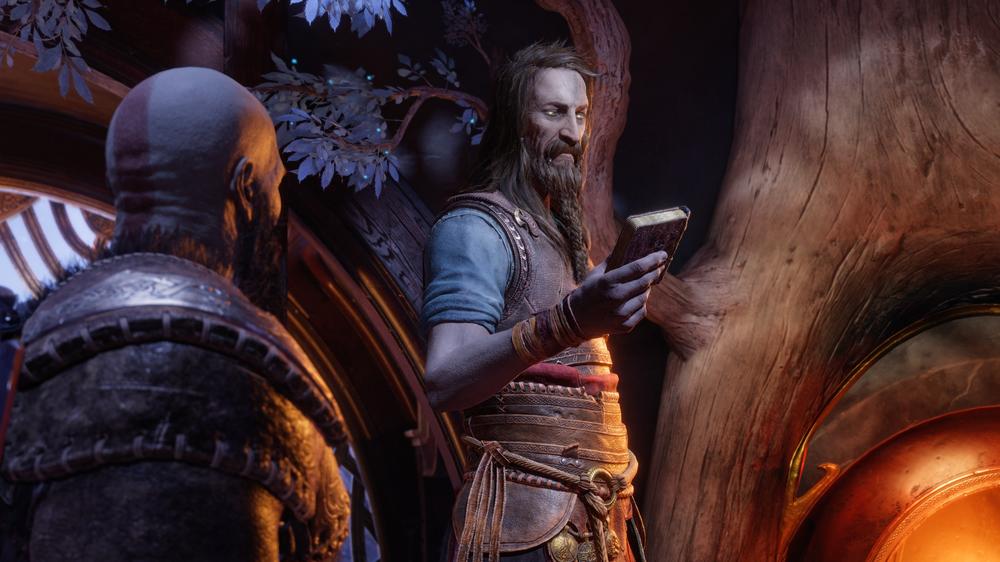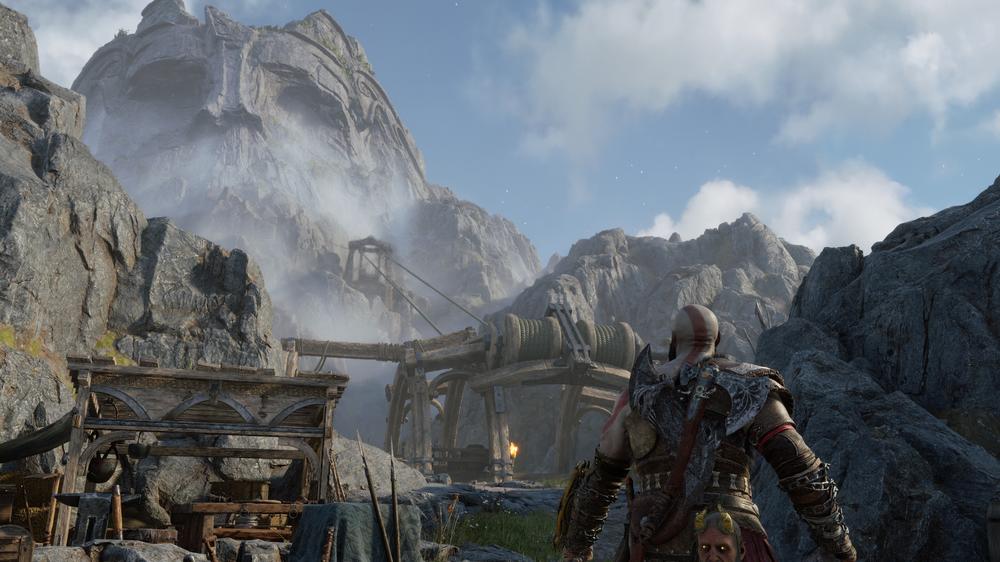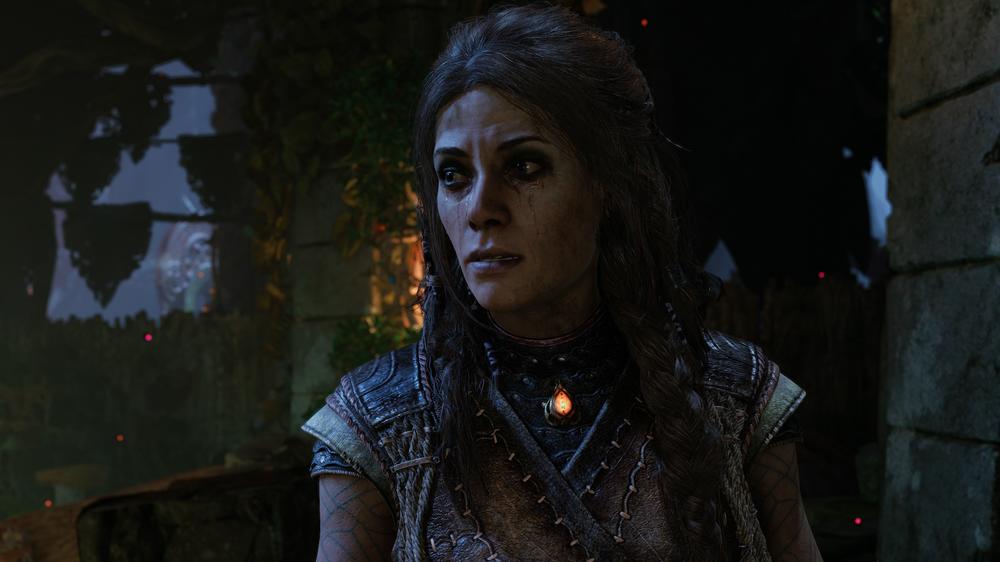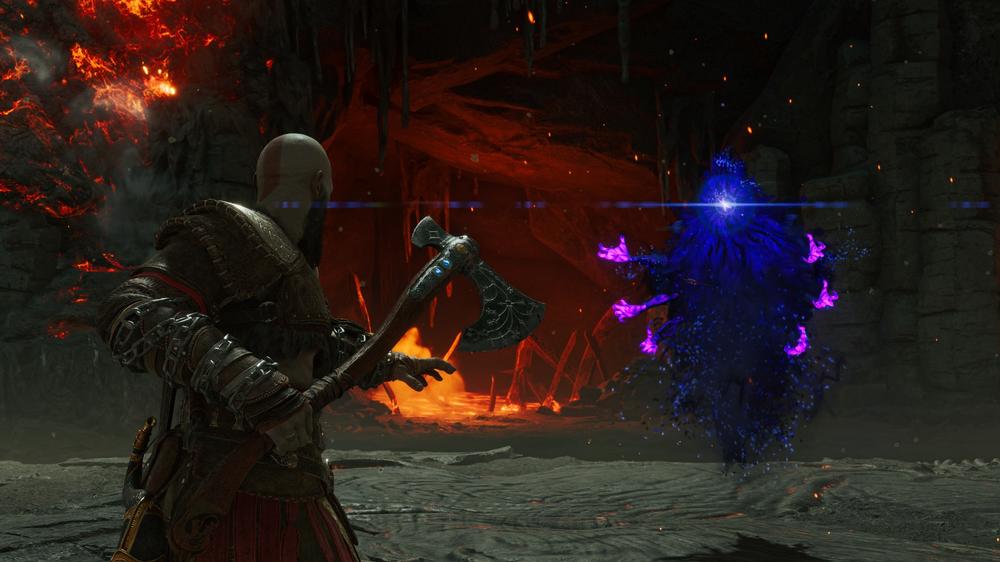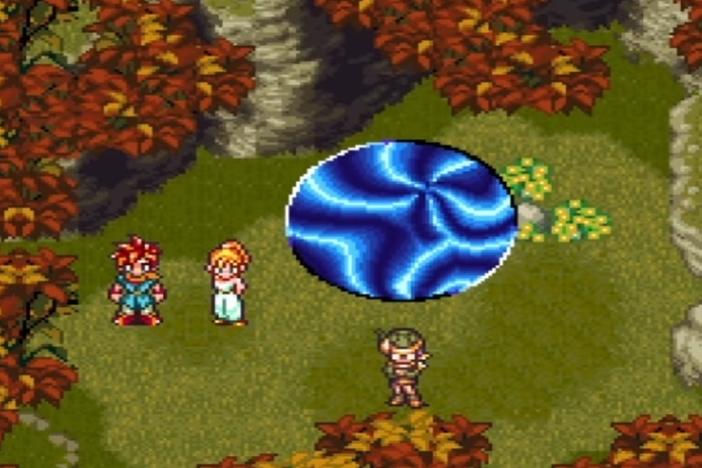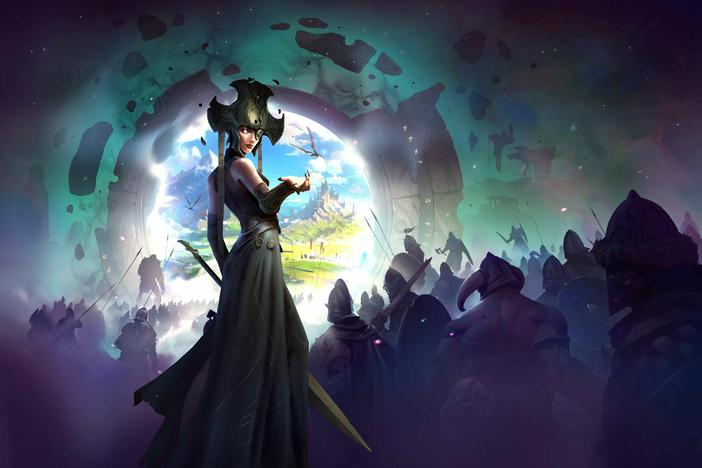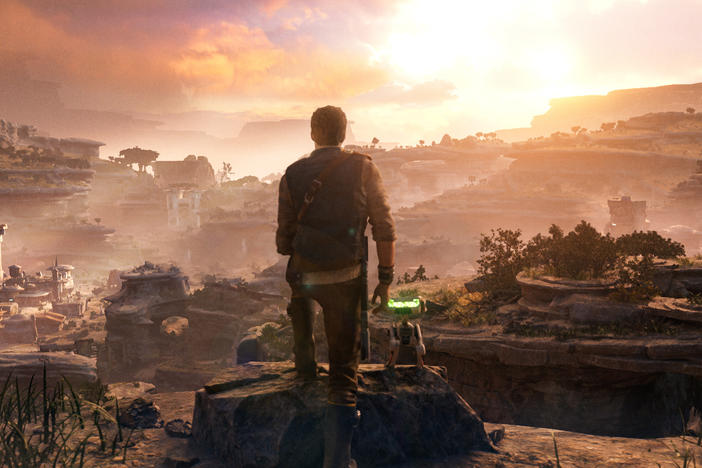Section Branding
Header Content
Review: 'God of War: Ragnarök' is a majestic, if sometimes aggravating, triumph
Primary Content
God of War Ragnarök wastes no time throwing us back into its grim setting, with Kratos and Atreus running for their lives through frosty wilderness. While the two may have triumphed at the end of the 2018 game, they provoked the wrath of nearly the entire Norse pantheon. After evading a vengeful Freya, we're greeted by a mirror of the 2018 game's somber opener. Only this time, instead of laying his mother to rest, Atreus has put down a beloved wolf companion.
The camera lingers on this drawn-out grief with photorealistic expressions and gorgeous scenery. While God of War Ragnarök still offers plenty of action, the game takes its time, forcing you to weigh the consequences of every action you take.
Only this time, there's observable tenderness and respect in the core father-son dynamic. Kratos, once an uncompromisingly stern dad, now slips proud smiles from time to time. He trusts Atreus' instincts enough to let him drive the main story arc, even as he wrestles with his need to keep him safe. Kratos expresses more frustration with himself than with Atreus, fully aware that no amount of training can stop Ragnarök and the role his son is fated to play in it.
But he still tries, like any overbearing parent might. And like the teenager he is, Atreus continually keeps hides actions he think his father will disapprove of, which only causes Kratos to respond by getting yet more protective. Meanwhile, Mimir, the world's smartest severed head, gets passed between them as friend and peace keeper — and Sindri, the germophobic dwarf, gets welcome character development as Atreus' partner-in-crime.
While this found family oozes charisma, other gods also threaten to steal the show. The game quickly introduces us to Týr, another "God of War." Where Kratos has always carried his role with rage and stoicism, all that violence broke Týr, leaving him traumatized and pacifistic (after you break him out of prison, he asks if he can sleep in a closet, because too much space and freedom would be 'unsettling'). It's hard to grab the spotlight when you're acting alongside Christopher Judge, but Ben Prendergast manages just that. And Danielle Bisutti's Freya, haunted by the death of her son, gives some of the most beautifully rendered reactions I've ever experienced in a game.
The game's world also towers over Kratos as impressively as its Norse deities, for better and for worse. Each realm explodes with color and life — or stands out for its eerie emptiness. The verticality of Ragnarök is more tightly packed than any Dark Souls game; the greatest struggle to every puzzle comes in parsing the layers presented to you. You can look at a solution for ages without discerning what level it was on, or even what it was.
While the game boasts myriad accessibility settings, it's oddly unhelpful with this particular confusion. Atreus and Mimir often proffer hints incessantly in and out of combat, only to be mum while you're churning through a particularly tough puzzle needed to progress the story. Sometimes it just feels broken. When you solve what had gotten you stuck, they'll explain the solution to you, as if it didn't just happen.
It's like when a friend tells you a hilarious joke, but insists on explaining the punchline when you're already laughing. In one early scene, you find a dead dwarf crushed by rocks. The dwarf is holding an item, you take it, the rocks holding him in place collapse, and then you're thrown into a fight. After this, Atreus informs you that it seems like there's wind coming through the crack in the wall you've already found, so that must be the exit. Rather than feeling like a reward, this narration starts to grate, as if the game doubts your intelligence.
This carries on to a baffling choice in combat as well. I appreciate how Kratos' fighting style has gotten smoother since 2018, and how Atreus has become a much more competent assistant. But, at the end of nearly any big fight, a character will inform you that you're fighting the final enemy. Again, this is too little, too late. I didn't need to know when a fight was nearly done, I needed to know when there were legions of enemies still behind me that had spawned off-camera.
But its the story that keeps you enthralled, even if some mechanics can irritate. I was eager to follow every thread towards its inevitable, apocalyptic conclusion. However, where the vertical levels can be too tightly packed, the plot can go too broad. The game sets up important events and lets them go unresolved for hours of playtime. Even if you removed some side quest bloat, it feels like Ragnarök's creators packed in more content because they had the license to do so, rather than because it aided the story they wanted to tell.
However, Ragnarök does know what its heart is. It's a story about a traumatized father struggling to protect his son while he tries to raise him to be a better man than he ever was. It's the story of a son who wants to live up to an impossible legacy and an opaque prophecy. Bizarre design choices may make it harder to move past the games many frustrations, but move past them you do, traversing the spiraling and stupendously-rendered realms alongside its characters. Santa Monica Studios have done it again, offering up an absolute triumph, even as they struggle to get out of their own way.
Danny Lore is a Black sci-fi/fantasy writer of prose and comics. They hail from Harlem and the Bronx.
Copyright 2022 NPR. To see more, visit https://www.npr.org.
Bottom Content

